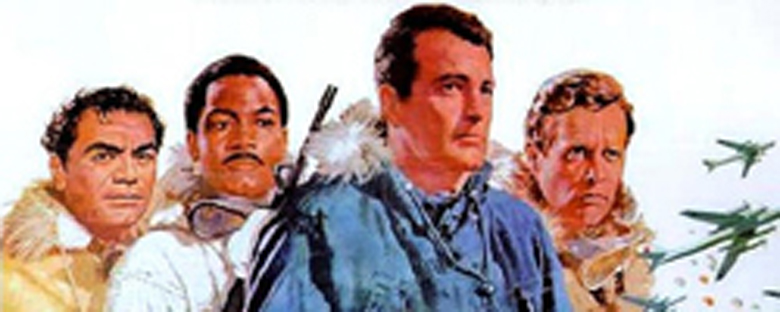Reviews
John Sturges
USA, 1968
Credits
Review by Matt Bailey
Posted on 19 January 2005
Source Warner Bros. DVD
It is hard to believe that John Sturges’ Ice Station Zebra was made and released by MGM at the same time as Stanley Kubrick’s 2001: A Space Odyssey. The two films seem worlds apart, even though some of the visual effects developed for one were used in the other. Whereas Kubrick’s film looks forward to the future and hardly seems dated even though its titular year is well past us, Sturges’ film belongs to another time when action films were character-driven and when the action genre was dedicated to the presentation of a single, spectacular climactic event after a couple hours of buildup. This was the model for most of Sturges’ 1960s films, those made after he abandoned (temporarily) the small-scale Western for widescreen adventure stories with big casts and big plots like The Magnificent Seven, The Satan Bug, and The Great Escape. Like those films, Ice Station Zebra happily plods along, shaping character motivations and developing narrative threads and backstory, until a major set piece puts all of the characters in motion with (or against) each other and the final event shakes everyone out where they belong.
The major plot resolution of Ice Station Zebra, which comes some two hours into the film, is the rescue of a downed spacecraft containing sensitive information at the North Pole by American military forces. The race for the prize via nuclear submarine before it can be located and captured by Soviet agents is what drives the movie, even though it seems to drag at times and plot obstacles seem to be pulled out of thin air in order to expand the running time. Once the sub crew arrives at the North Pole, the movie really takes off and nearly becomes worth the long trudge through piles of pages of expository dialogue to get to the thrilling finale.
While the film represents the work of some extremely talented people—the special effects are often stunning, the actors are uniformly outstanding, and the underwater and second-unit photography are of the highest order—it is simply too long. Any movie longer than ninety minutes really needs to earn its length, and this one does not. Some of the longest movies—Gone With the Wind, Lawrence of Arabia, The Leopard—truly justify every minute of their running time by never slackening the pace and never being less than transfixing at every moment. Ice Station Zebra is only intermittently attention-grabbing and would have made for an exhilarating thriller at a slim ninety minutes, but the epic scale of a less-than-epic story, combined with an overture and entr’acte, drive the movie right up to the edge of tolerability. Yet, for better or worse, this is how movies like this were being made in 1968.
Sadly, with the exception of 1972’s Joe Kidd, a moderately interesting Clint Eastwood Western, Ice Station Zebra marked the end of John Sturges’ career as an interesting, innovative director. At one time the pioneer of framing and staging in the widescreen frame and a gifted director of actors (1955’s Bad Day at Black Rock and 1959’s Last Train From Gun Hill are marvels to behold in both respects), Sturges’ last film was the flat and uninteresting The Eagle Has Landed. For some reason, Ice Station Zebra remains a popular film, but those who praise it while ignoring Sturges’ better, previous work do themselves a serious disservice.
We don’t do comments anymore, but you may contact us here or find us on Twitter or Facebook.



